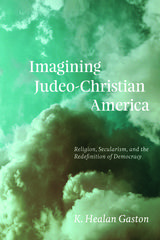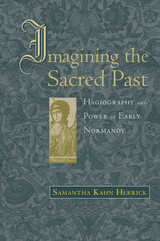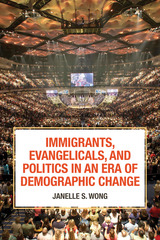3 start with I start with I


In 911, the French king ceded land along the river Seine to Rollo the Viking, on condition that he convert to Christianity. Over the next century and a half, Rollo and his descendants would become powerful and pious Christian rulers of the mighty European territory, Normandy. In 1066, Rollo's descendant William would conquer England, with papal sanction.
Investigating the role of religious tradition in the legitimation of power and the establishment of identity, Samantha Kahn Herrick illuminates the often murky early history of the duchy of Normandy. Central to this religious heritage stood the region's traditional saints, whose deeds, recorded in Latin lives, were celebrated regularly. Herrick focuses on the neglected figures Taurinus of Evreux, Vigor of Bayeux, and Nicasius of Rouen, saints with particular resonance in areas central to the Norman dukes' territorial ambitions. In elaborating a vision of the past that helped explain the present, the saints' stories sanctioned the dukes' rule.
Innovative in its historical use of hagiographical literature, this work advances our understanding of early Normandy and the Vikings' transformation from pagan raiders to Christian princes. It also sheds light on the intersection of religious tradition, identity, and power.

Asian Americans and Latinos currently constitute 13 percent of evangelicals, and their churches are among the largest, fastest growing organizations in their communities. While evangelical identity is associated with conservative politics, Wong draws from national surveys and interviews to show that non-white evangelicals express political attitudes that are significantly less conservative than those of their white counterparts. Black, Asian American, and Latino evangelicals are much more likely to support policies such as expanded immigration rights, increased taxation of the wealthy, and government interventions to slow climate change. As Wong argues, non-white evangelicals’ experiences as members of racial or ethnic minority groups often lead them to adopt more progressive political views compared to their white counterparts.
However, despite their growth in numbers, non-white evangelicals—particularly Asian Americans and Latinos—are concentrated outside of swing states, have lower levels of political participation than white evangelicals, and are less likely to be targeted by political campaigns. As a result, white evangelicals dominate the evangelical policy agenda and are overrepresented at the polls. Also, many white evangelicals have adopted even more conservative political views in response to rapid demographic change, perceiving, for example, that discrimination against Christians now rivals discrimination against racial and ethnic minorities.
Wong demonstrates that immigrant evangelicals are neither “natural” Republicans nor “natural” Democrats. By examining the changing demographics of the evangelical movement, Immigrants, Evangelicals, and Politics in an Era of Demographic Change sheds light on an understudied constituency that has yet to find its political home.
READERS
Browse our collection.
PUBLISHERS
See BiblioVault's publisher services.
STUDENT SERVICES
Files for college accessibility offices.
UChicago Accessibility Resources
home | accessibility | search | about | contact us
BiblioVault ® 2001 - 2024
The University of Chicago Press









